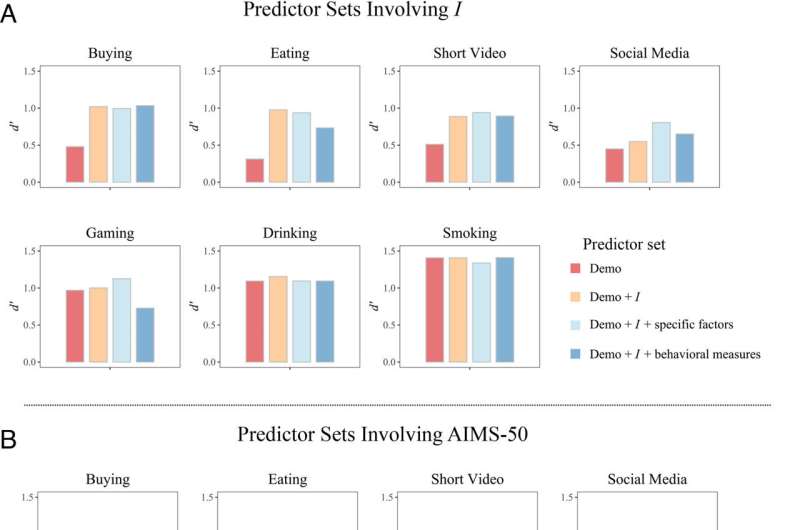This article has been reviewed according to Science X's editorial process and policies. Editors have highlighted the following attributes while ensuring the content's credibility:
fact-checked
peer-reviewed publication
trusted source
proofread
Large-scale study supports validity of impulsivity as a personality trait

We can all act on an impulse, with some seemingly doing it more often and others less. Psychologists have been studying impulsivity as a personality trait since the 1930s and have linked impulsivity to a variety of harmful behaviors, such as violence and excessive use of social media, as well as mental disorders, such as bipolar disorder and substance use disorder.
A study by a research team led by Dr. Luan Shenghua from the Institute of Psychology of the Chinese Academy of Sciences (CAS) has provided comprehensive evidence that impulsivity is a stable, measurable, and predictive personality trait.
The study, one of the largest in the field, disagrees with the pessimistic view that research on impulsivity is fraught with problems, including inconsistencies in its definition and a lack of reliable measurement tools. The paper is published in the journal Proceedings of the National Academy of Sciences.
A total of 1,676 participants took part in the study. Each completed 48 impulsivity measures derived from 10 self-report scales and 10 behavioral tasks. The participants also reported the frequency of seven impulsivity-related behaviors, such as impulsive buying and social media use.
Using advanced psychometric methods, the researchers found a general factor of impulsivity, I, in this large-scale data. Factor I is similar to the general factor g in intelligence and represents the common component shared by a wide range of impulsivity measures.
According to the researchers, factor I was stable over time—in fact, it was the most stable of all measures over a three-month interval—and was good at predicting impulsivity-related behaviors, as evidenced by analysis using machine learning algorithms.
Based on their data and modeling results, the researchers further developed a new scale, the Adjustable Impulsivity Scale (AIMS), to measure impulsivity. AIMS has excellent psychometric properties that are largely retained in shorter versions and is quite effective with only 10 measurement items.
"These results show that impulsivity is a valid and useful psychological construct for differentiating people. To paraphrase Mark Twain, reports of the death of impulsivity may have been greatly exaggerated, and this construct is still very much alive," said Dr. Luan, corresponding author of the study.
The discovery of the general impulsivity factor I and the development of the new AIMS scale are the two most notable contributions of this study. They significantly advance the conceptualization and measurement of impulsivity and facilitate the application of impulsivity as a personality trait in both clinical and non-clinical contexts.
More information: Yuqi Huang et al, Impulsivity is a stable, measurable, and predictive psychological trait, Proceedings of the National Academy of Sciences (2024). DOI: 10.1073/pnas.2321758121



















